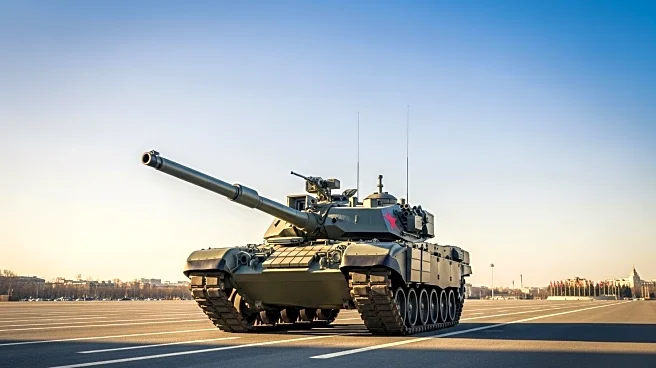What's Happening?
China is preparing for a grand military parade in Beijing to commemorate the 80th anniversary of Japan's surrender in World War II. The event is orchestrated by President Xi Jinping and is set to display China's military prowess and diplomatic influence. The parade will feature new hypersonic weapons and unmanned underwater drones, with attendance from 26 foreign heads of state, including Russia's Vladimir Putin and North Korea's Kim Jong Un. This marks a significant diplomatic achievement for Xi, as it includes the first visit by a North Korean leader to a Chinese military parade since 1959. The parade is part of a broader campaign to foster a 'right view of WWII history,' which has caused friction with Japan.
Why It's Important?
The military parade serves as a demonstration of China's growing global influence and military capabilities, challenging the United States' position in international affairs. It highlights China's strategic alliances with countries like Russia and North Korea, potentially reshaping geopolitical dynamics. The event also underscores domestic issues, such as economic challenges and youth unemployment, by promoting national pride and patriotism. The parade's emphasis on historical narratives aims to consolidate internal support for the Communist Party amidst economic and social discontent.
What's Next?
Following the parade, China may continue to strengthen its diplomatic ties with participating nations, potentially influencing global power structures. The event could lead to increased tensions with Japan and Western countries, as China's military advancements and alliances are perceived as a challenge to existing international norms. Domestically, the parade might bolster support for Xi Jinping's leadership, but underlying economic and social issues remain unresolved, requiring further government action.
Beyond the Headlines
The parade reflects China's efforts to control historical narratives and maintain domestic stability through displays of power. It raises ethical questions about the manipulation of history for political purposes and the suppression of dissent. The event also highlights the cultural significance of military parades in fostering national unity and pride, while masking underlying societal challenges.










